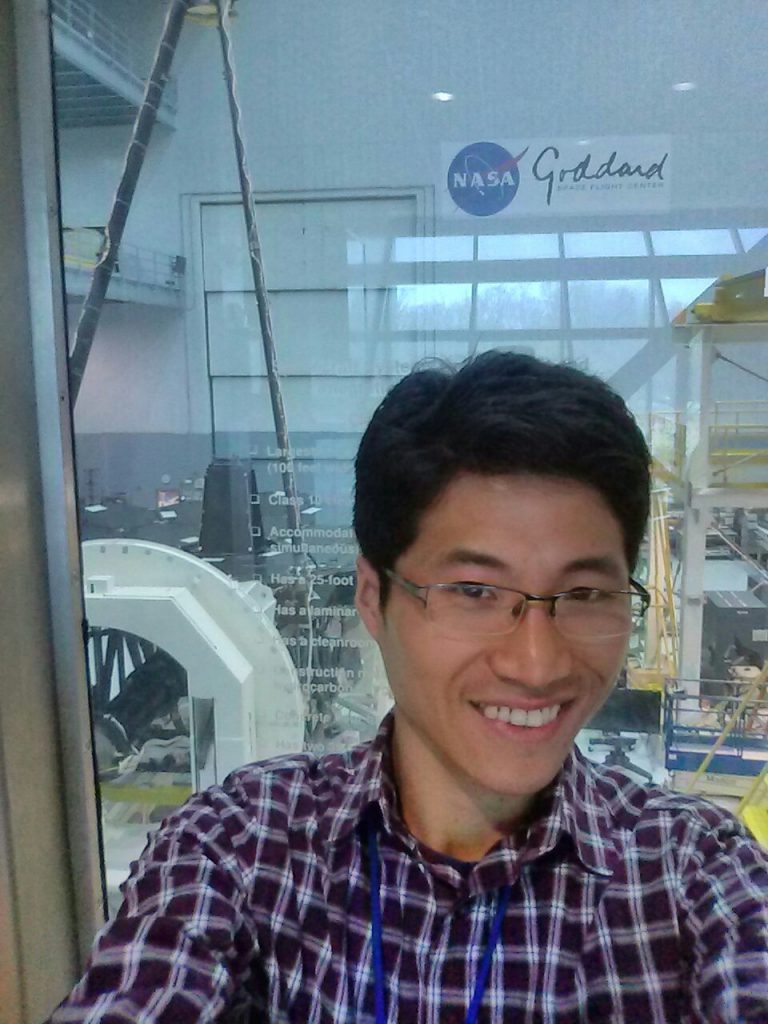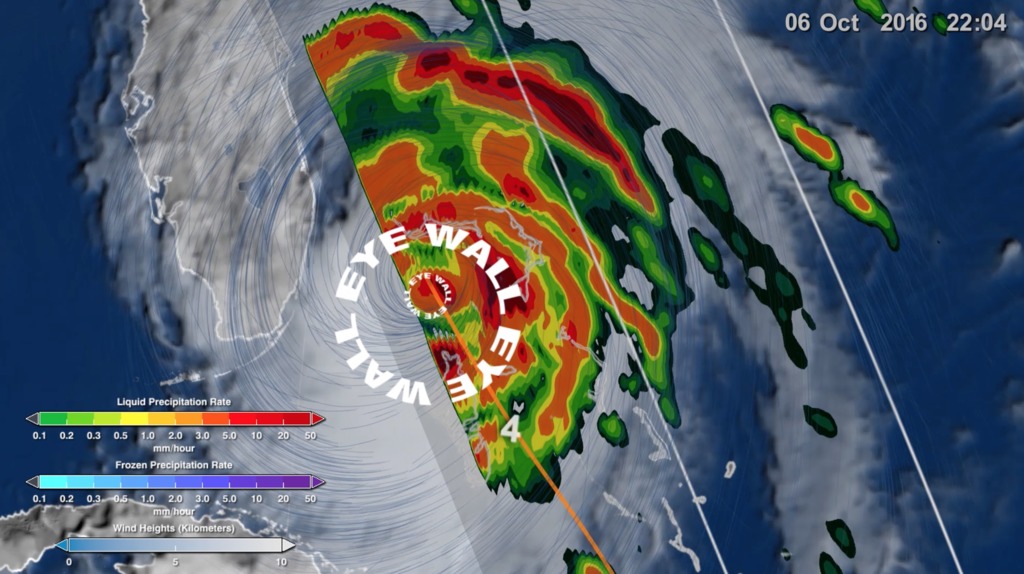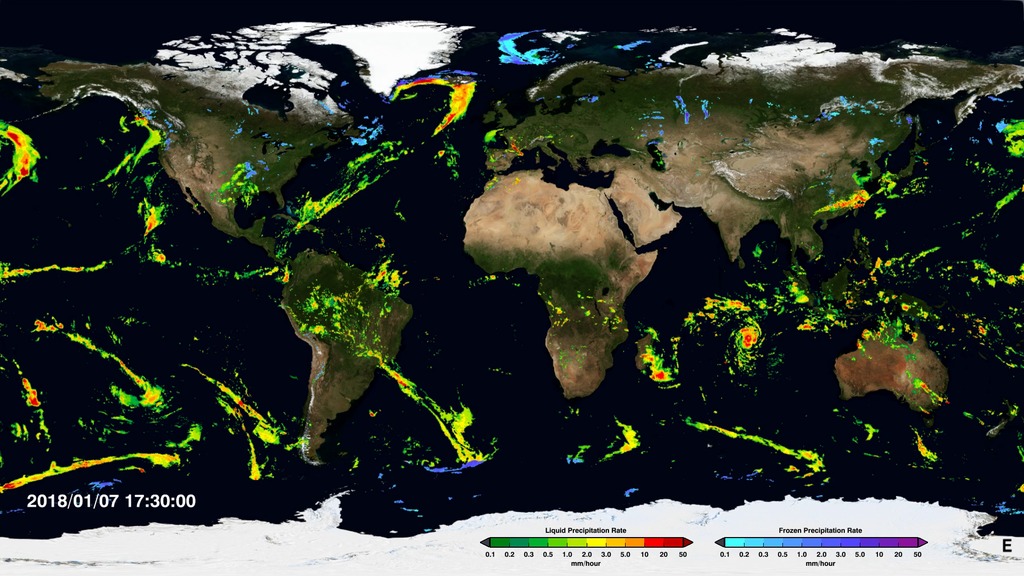Our Alumnus Speaks …
Be it rain or be it shine
Alumnus Dr Jackson Tan [BSc (Hons) 2009] pursued his PhD in Atmospheric Science at Monash University (Melbourne, Australia) and graduated in 2014. He shared about his current work at NASA Goddard Space Flight Centre in Greenbelt, Maryland, USA.
What do you have in mind to embark on upon graduation?
I did my honours project in quantum mechanics. After graduation, I was not sure what I wanted to do, but I knew I like computational-based research and I wanted to work on a more applied field that is directly relatable to the real world. I have always had an interest in climate science and the environment, which was re-ignited when I took the module Environmental Sustainability in my final semester. (Yes, those cross-faculty modules are great!) So upon graduation, I did a Masters in Earth Sciences and got hooked on the myriad of problems and interdisciplinary nature of climate science.
Share with us your current field of work.
My current field of work is on precipitation i.e. rain and snow. Precipitation is critically important to society, but for a variety of reasons, it is hard to quantify and forecast with precision and there is considerable uncertainty on how it will change in a warming climate.
I work on the Global Precipitation Measurement (GPM) mission, which is a joint satellite mission by NASA and JAXA (Japan Aerospace Exploration Agency) to improve our understanding of precipitation around the world. One of the objectives of the GPM mission is to provide a global map of precipitation at very high space and time resolutions, so it can be used to improve predictions of natural hazards such as hurricanes, floods, and landslides. I am currently working on the algorithm in producing this map of global precipitation from a constellation of satellites, working on an aspect to fill in gaps in the data so the map will be complete.
Other areas of my research interest involve understanding how precipitation is connected to other aspects of the atmosphere, quantifying using observations the relationship between clouds, precipitation, circulation, and atmospheric water vapour.

How relevant is a physics education to your present work?
A physics education imparts a rigorous analytical and mathematical thinking that is important to many applied science disciplines. This is perhaps best illustrated by two examples in my experience.
There were generally two classes of background people (including myself) enrolled in the PhD in climate science came from: meteorologists and scientists/engineers. Meteorologists have it easy at first because they are already familiar with many of the climate science concepts, whereas we scientists/engineers have to figure it as we go along. However, it is not long before we catch up with the meteorologists and, with our superior grasp of math and logic, sail past them. That shows the value of a solid foundation in math and logic that a physics education can instil.
In the remote sensing of precipitation, physics may not be directly used in day-to-day work, but it provides the tools to understand the theoretical underpinnings. One source of precipitation observation is from infrared measurements of cloud tops on board geostationary satellites, which are used to infer the surface precipitation rates. However, the relationship is indirect—cloud heights do not correlate strongly with surface rain intensity—and often leads to significant inaccuracies. It has long been recognized that observations in the microwave spectrum can pass through clouds and precipitation can be observed directly; this is due to absorption and scattering: the size of cloud droplets is comparable to the visible/infrared wavelengths while the size of precipitation droplets is comparable to microwave wavelengths (physics!). However, microwave has a much longer wavelength, which leads to a lower resolving power than visible and infrared (physics again!), so they are often put only on low-earth orbit satellites which are about 90 times closer than geostationary satellites (physics once more!), at the tradeoff of a limited and changing view over Earth at any one time. The understanding of this knowledge behind the work I am doing is facilitated by my physics background.
What are some challenges you face at work and how do you manage them?
Even though I am working on one project at the moment, there are often multiple tasks demanding my attention, so juggling between them is necessary. Almost always, there is never enough time to do everything, so prioritization and time management are critical.
Most science endeavours are collaborative, so I often need to work and rely on other people. Therefore, it is important to build good relationships. It pays to be polite and understanding, but also know when to stand your ground but with tact.
What are some skills you think are important for graduates to acquire to succeed in today’s workforce?
Skills are more important than knowledge. You may not end up using what you learn from electrodynamics, but your experience in vector calculus will come in handy when looking at atmospheric flows! More generally, your ability to apply math where relevant and when needed is always a plus.
Networking skills are often undervalued in the sciences. Get to know people, maintain good relationships, and reciprocate all the goodwill you receive.
Creative thinking—ability to think outside the box and come up with new ideas—is what separates humans from robots. Physics is not about knowing how to calculate stuff—that’s a job for Mathematica—but to interpret results, draw conclusions, and devise new explanations or conjectures.
Finally, any words of encouragement for your juniors?
It is important to find joy in what you do. Related to this, you should also work on something that relies on your aptitude. Do you like fiddling around with math? Do you like programming? Do you prefer fieldwork? How about teaching? Science outreach? Leverage what you are good at and improve on the necessary skills that you lack of.


